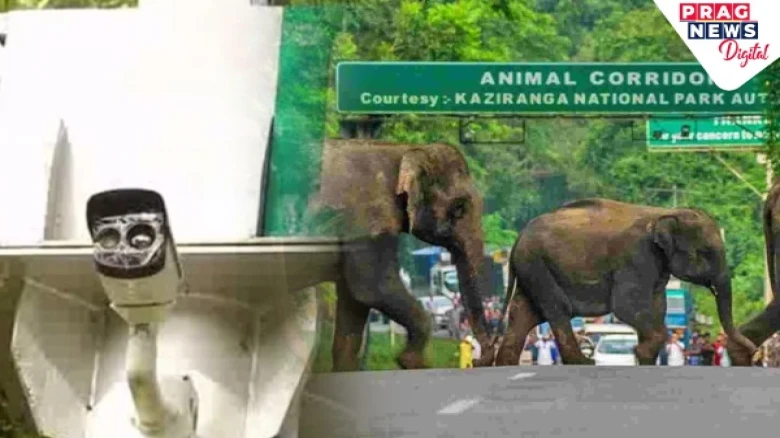The damaged cameras also highlight a violation of the National Green Tribunal's decisions, which emphasised the importance of...
Digital Desk: The endangered animals of Assam's
Kaziranga National Park and Tiger Reserve are in jeopardy because the sensor cameras mounted on wildlife corridors have been rendered inoperable, revealing a severe breach in wildlife conservation efforts. Environmentalists and animal campaigners are concerned about the development, fearing that the lack of monitoring mechanisms may have serious effects on the region's valuable biodiversity.
The matter was brought to light by Rohit Choudhury, an RTI and environmental activist, in a letter to the Chief Secretary of the Assam Government. Choudhury's letter reported the non-operation of six speed-sensing cameras fitted with Automatic Number Plate Recognition (ANPR) Radar that was put in Kaziranga National Park's designated animal corridors along
National Highway-37.
The installation of these cameras was in result of National Green Tribunal rulings aimed at reducing vehicles breaching the speed limit of 40 km/hr on the 44-kilometre stretch of National Highway-37 from Rangalu to Borjuri. The ANPR-equipped cameras were supposed to help enforce the order and safeguard the wildlife in the area.
However, the cameras have been inoperable since February 1, 2023, allegedly due to the service provider, M/s Datalogic, stopping operations due to non-payment by the park authorities.
According to Choudhury's letter, the Assam Forest Department has budgeted about Rs.4.95 crores for the upkeep of these cameras in the fiscal year 2022-2023. However, the delay in paying the corporation responsible for their installation has rendered the cameras inoperable, increasing the vulnerability of endangered animals in the area.
The lack of operational cameras has increased rash and careless driving along designated corridor regions, posing a serious hazard to animals. This risk is especially concerning given the forthcoming flood season when migratory wildlife relies largely on these corridors for safe passage.
The non-operational cameras also highlight a violation of the National Green Tribunal's decisions, which emphasised the importance of effective vehicle speed monitoring in the area. The contempt for these directives not only jeopardises the safety of wildlife but also undermines the conservation efforts made by the Assam Police, with admirable backing from the Chief Minister of Assam, to combat rhino poaching in Kaziranga National Park.









Leave A Comment